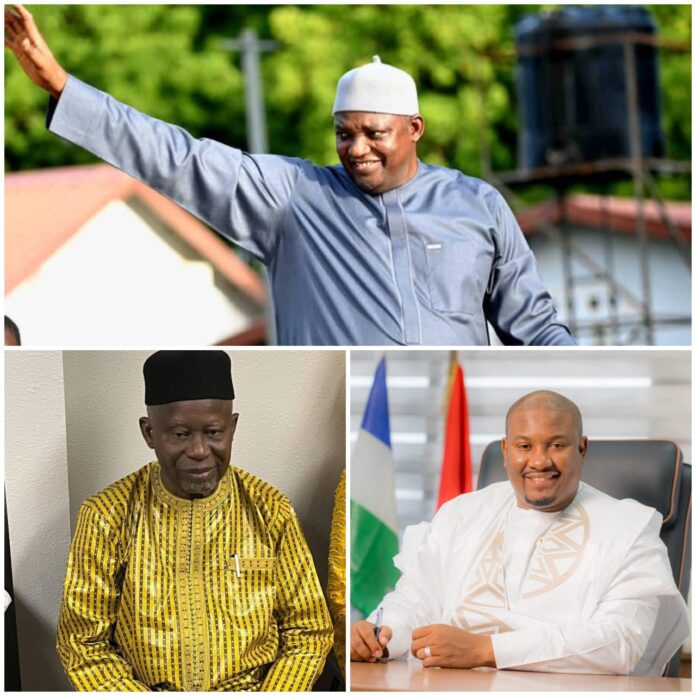By Hadram Hydara
A new opinion poll indicates a profound challenge for The Gambia’s established political leaders, with both President Adama Barrow and main opposition figure Ousainou Darboe facing significant public scepticism ahead of the 2026 presidential election.
The survey, conducted by Cepress, reveals that a majority of Gambians are opposed to both men leading the country, sparking discussions about a potential generational shift in politics.
President Barrow confronts particularly stark numbers. A clear majority of respondents, 55%, believe he should not seek a third term, with only 35% in support. Should he run, the poll suggests he would face an uphill battle, as 60% of respondents stated they would not vote for him, with just 19% expressing willingness to back his candidacy.
Opposition leader Ousainou Darboe of the United Democratic Party (UDP) fares no better. A larger majority, 59%, do not believe he should contest the 2026 election. In a hypothetical vote, a decisive 63% of respondents said they would not vote for him, with a mere 18% indicating support.
The data reveals a notable gender and generational divide. President Barrow’s potential candidacy is rejected more strongly by men (34%) than by women (21%). Similarly, Darboe faces his highest rejection among men, with 38% opposed to his candidacy compared to 22% of women.
The strongest opposition to both leaders is concentrated among voters aged 25-44, pointing to a significant generational challenge for the current political establishment.
Amid this decline in support for the dominant figures, the poll points to a potential new front in UDP leadership. When respondents were asked who should succeed Mr. Darboe as the party’s presidential candidate, Talib Ahmed Bensouda, the mayor of Kanifing, emerged as the clear favourite, with 44% of respondents backing him.
He far outpaces other potential successors within the party, including Yankuba Darboe, who garnered 13% support.
The survey also uncovered significant regional variations. President Barrow finds his strongest support in Basse, where 56% of respondents said they would vote for him. Conversely, Ousainou Darboe’s highest vote intention was found in Mansakonko (53%), though he faces majority opposition in most other areas.
A large proportion of voters remain undecided on the future leadership of the UDP, with 35% stating they “don’t know” who should succeed Darboe, suggesting the party’s succession plan is still an open question for many Gambians.
The findings paint a picture of an electorate seemingly disillusioned with the current political options and potentially open to newer alternatives, setting the stage for a highly competitive and unpredictable election in 2026.




